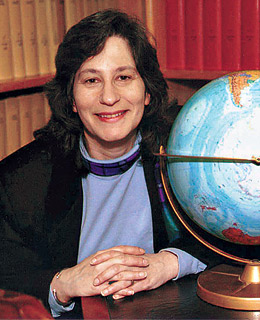
All scientists like to believe they will leave the world better than they found it. Susan Solomon of the National Oceanic and Atmospheric Administration surely will. Having helped save the earth's atmosphere already, she is now playing a role in doing it again.
An atmospheric chemist, Solomon, 52, was one of the first to be stirred into action by reports in the 1980s of deterioration of the planet's ozone layer. In 1986 and '87, she led expeditions to Antarctica, working through the darkness of the polar winter and bringing back confirmation that there was indeed a growing ozone hole and that chemicals known as chlorofluorocarbons (CFCs) were causing it. Those conclusions helped lead to a global ban on CFCs.
Last year she tackled an even bigger job. As a co-chair with Dr. Qin Dahe of Working Group 1 of the U.N.'s Intergovernmental Panel on Climate Change (IPCC), she played a key role in producing the report that has helped the world understand the severity of global warming. Certainly Solomon was not alone. Three working groups drafted the report, and when the IPCC and former Vice President Al Gore were awarded the 2007 Nobel Peace Prize, it was an acknowledgment of the work of many. Still, it's hard to overlook Solomon among the many, both for what she has achieved in the past and for the achievements sure to come.
Pachauri is chairman of the Intergovernmental Panel on Climate Change